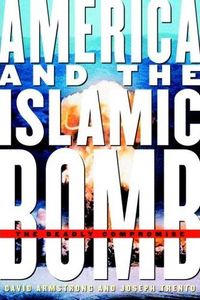

Purchase
The Deadly Compromise
Steerforth
November 2007
On Sale: October 23, 2007
288 pages
ISBN: 1586421379
EAN: 9781586421373
Hardcover
Add to Wish List
Non-Fiction Political
The turbulent nation of Pakistan, where Osama bin Laden is
far more popular than George W. Bush, possesses a nuclear
arsenal built with technology from the United States and
Europe, and financed with the help of America’s allies in
the Muslim world. Its dictatorial president, Pervez
Musharraf, faces widespread civil opposition, and militant
extremists threaten his life every day. The nuclear weapons
programs in North Korea and Iran, as well as Libya’s
now-defunct atomic effort, relied heavily on expertise and
materials provided by the nuclear smuggling network headed
by Pakistan’s national hero, A.Q. Khan. The United States –
from Carter and Reagan, through Bush I, Clinton, and the
current president – and other Western governments knew all
along that Pakistan was first developing and then exporting
nuclear technology, yet consistently turned a blind eye in
order to gain Pakistan’s cooperation during the Cold War
and, more recently, in the war on terror. As a result of
this Faustian bargain, nuclear technology has been allowed
to spread far and wide, dramatically increasing the chances
that terrorists or unfriendly regimes will someday get their
hands on an atomic device. David Armstrong and Joseph Trento provide a new and
unrivalled perspective on the so-called A.Q. Khan nuclear
black market scandal, including exclusive accounts from
customs agents, intelligence analysts, and other
ground-level front-line operatives. Documented in these
pages are maddening experiences of official interference and
breathtaking instances of indifference and incompetence.
Trento and Armstrong name names and reveal stunning new
information about proliferators in an exposé that is sure to
generate headlines. This secret history of how the Islamic
bomb was developed and how nuclear arms have proliferated is
as fascinating as it is disturbing.
Comments
No comments posted.
Registered users may leave comments.
Log in or register now!
| 


 © 2003-2025 off-the-edge.net
all rights reserved Privacy Policy
© 2003-2025 off-the-edge.net
all rights reserved Privacy Policy